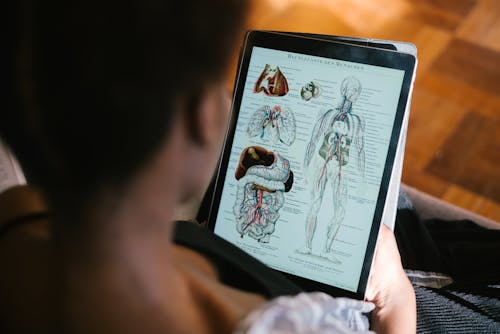Education is a beginning towards success. Without it, we’re no more different than animals. We all know exactly how important it is for us, and the truth is we find it boring most of the time, isn’t it awkward? Well, some students work hard to educate themselves, I appreciate this, hard work is another key to success, but we’re living in an advanced century where time is another valuable asset for us, so we need to be smart when it comes to studies. Studying smarter than harder is more efficient and time-saving and brings you more productive results.
Studying can sometimes feel overwhelming, especially when you’re trying to remember a lot of information. Making the most of your study time worth learning is more important than simply spending more time with your books. Studying properly teaches you how to process important information more quickly, which increases productivity and decreases stress during study sessions. This post will discuss several study techniques that are simple enough for even young children to understand and use. By using these strategies, you’ll increase your enjoyment of the learning experience as well as your grades.
Tips To Study Smarter, Not Harder
Understanding your learning style

Alright, so let’s begin with the most basic step, which is you need to understand your learning style first. Everyone has a unique way of learning. Some people remember things better when they see them, while others learn best by hearing information. Different learning styles exist, including kinesthetic, auditory, and visual. Don’t copy others or push yourself, just know yourself first. Knowing your learning style is essential since it enables you to customize your study strategies to maximize efficiency and enjoyment from your studies.
- Visual Learners: They learn best by seeing. They prefer using pictures, diagrams, and written instructions.
- Auditory Learners: They learn best by hearing. They benefit from listening to lectures, discussions, and audio recordings.
- Kinesthetic Learners: They learn best by doing. They need hands-on experiences and activities to understand information.
Pro Tip
Analyze how you remember information to choose your preferred method of learning. Do you remember things you see, like pictures or diagrams? Do you remember things you hear, like audio or lectures? Or do you learn best when you do activities? Once you know your learning style, it allows you to adjust your study techniques accordingly. For instance, utilize colorful notes and diagrams if you’re a visual learner. Consider listening to course recordings if you’re an auditory learner. Use practical exercises to better understand things if you’re a kinesthetic learner.
Effective Time Management

Effective time management is essential to learning more efficiently. Divide your study routines into smaller, more manageable parts rather than trying to fit it all into one long session. Smartly manage your time and include some breaks to refresh yourself. You’ll be able to concentrate better and stay out of overload in this method. Effective time management helps you make sure you cover all the required content without feeling drained. Moreover, time management builds your career in the long run, because you’re going to need this skill for other attributes in your life.
Here are some tips for effective time management:
- Create a Study Schedule: Plan your study routine in advance. Decide what subjects you will study and when. Stick to your schedule as much as possible. Last but not least, follow this routine regularly.
- Prioritize Tasks: Focus on the most important tasks first. If you have a test coming up, prioritize studying for it over less urgent tasks.
- Balance Study Time with Breaks: Take short breaks between study sessions to get some rest. A good rule is to study for 25 minutes and then take a 5-minute break.
Active Learning Techniques

Active learning means engaging with the material in a way that makes it easier to understand and remember. Make an effort to engage with the study material rather than merely reading or listening. Passive study sessions can become lively and engaging with the help of active learning strategies, which will help the material stick in your memory and be simpler to recall for tests.
Here are some tips for active learning
- Summarize: After reading a chapter, write a summary in your own words. This helps you in more clarity what you’ve learned.
- Question: Ask yourself questions about the studied material. Why is it important? How does it relate to what you already know?
- Teach Others: Explain the material to someone else. This helps you understand the content in more depth and it sticks to your memory for a longer time.
Using technology wisely

When utilized properly, technology may be a very useful tool for studying. The most interesting part is most students don’t focus on their studies while using technical gadgets. You’re looking for a research paper online on Google and suddenly a pop-up appears from Snapchat, there you go, it could be distractive sometimes. You can improve your learning process by using any of the educational apps and internet tools available, but you’ve to make sure you turn off your notifications and focus on studying. You can gain access to a wealth of knowledge, instruments, and resources through the use of technology, which can improve your understanding and make learning more engaging and enjoyable.
- Educational Apps: Use apps with fewer ads and with more focus on educational content.
- Online Resources: Websites like Coursera and edX offer free courses on various subjects.
- Managing Distractions: As we discussed above, technology can help you study, but it can also be a distraction. Turn off notifications on your devices while studying to stay focused. Don’t use headphones or listen to music, keep your phone on silent, and make sure you put maximum focus on your studies.
Creating a productive study environment

Your ability to concentrate is greatly influenced by the setting in which you study. Always choose a place that has fewer distractions, is well-lit, and calm. Maintaining organization and focus throughout study sessions improves information absorption and recall. You can hardly focus on a piece of paper if you’re studying in a TV room or a noisy place with less light. So, always set your study place first then begin your voyage of knowledge.
- Choose the Right Location: Always choose a place where you can study without interruptions. It could be a quiet room at home or a library.
- Organize Study Materials: Keep your study materials organized and within reach. Use folders, labels, sticky notes, and color-coding to keep track of your notes.
- Minimize Distractions: Remove any distractions from your study area. This includes turning off your phone or using apps that block distracting websites.
Enhancing memory and retention

Improving your memory can help you recall information better. To improve your memory, you can employ several strategies. Using efficient memory strategies increases the reliability and utility of your learning by ensuring that you keep the information you need for future usage in addition to remembering it for tests.
- Mnemonics: Mnemonics are techniques of the memory that help you recall knowledge. For instance, you can use the statement “My Very Educated Mother Just Served Us Noodles” to help you recall the planets’ order: Mercury, Venus, Earth, Mars, Jupiter, Saturn, Uranus, and Neptune.
- Visualization: Visualize the information you want to remember. Creating mental images can make the information more memorable.
- Spaced Repetition: Review the material regularly over time. This will be a great help in learning things quickly.
Good sleep and nutrition are also important for memory. Make sure you get enough sleep and eat a healthy diet to keep your brain in good shape.
Taking Notes

Taking good notes is essential for studying smarter. Various note-taking techniques may help in improving information organization. Taking thorough notes guarantees that you will remember important details and boosts the effectiveness of review sessions, which will help in your ability to recall and fully understand the information better.
- Cornell Method: Your page should be divided into three sections: summary, cues, and notes. Make notes in the main section, list questions or keywords in the cues section, and end it with a summary.
- Mind Mapping: Create a visual map of the information with the main topic in the center and related ideas branching out.
- Organized Notes: Keep your notes clear and organized. Use headings, bullet points, and highlight important information.
Staying Motivated

The only thing modern students need the most to become smart in their studies is motivation. Some students need a dose of little motivation from time to time. Staying motivated is essential for successful study. To stay on course, make sure your goals are reasonable and attainable. Your study habits and goal-focused and are driven by motivation, which also helps you remain dedicated to and excited about your educational journey.
- Set Goals: Break your study goals into smaller, manageable tasks. Achieving these small goals can boost your confidence.
- Reward Yourself: Reward yourself after completing a task. It could be a treat, a short break, or doing something you enjoy.
- Stay Positive: Keep a positive attitude towards studying. Remind yourself of your goals and the benefits of studying smarter.
Seeking help when needed

Never hesitate to seek help if you’re having trouble with a subject. Trust me, there’s no shame in that. In fact, it makes you look more confident and open to others. You can get help from various resources according to your needs. Asking for assistance guarantees that you fully understand challenging topics and avoid falling behind, which improves efficiency and reduces the stress of your study sessions.
- Tutors: Tutors can provide personalized help and explain difficult concepts.
- Study Groups: Join study groups to collaborate with others. Discussing topics with peers can enhance your understanding.
- Teachers: Don’t hesitate to ask your teachers for help. They can provide guidance and additional resources.
Conclusion
Being smart about your studies is not only about using your resources. It’s a simple technique that every student needs to follow and execute. You need to follow these basic and simple methods to boost your learning and educational career. The more hard you study, it may become more tough for you with every increasing level. So, there’s no need to bind yourself to a limited and time-consuming habit, instead be creative, smart, and active about your learning and see the results.

Dheraj Behram is an aspiring educational leader from a remote village in South Punjab, currently pursuing a master’s degree in Educational Leadership in the US. With extensive experience collaborating with world-renowned educationists, Dheraj’s scholarly interests are the intersection of education and technology, particularly the benefits of partnerships in this area, the use of AI in education, and technologically advanced instructional design strategies.

